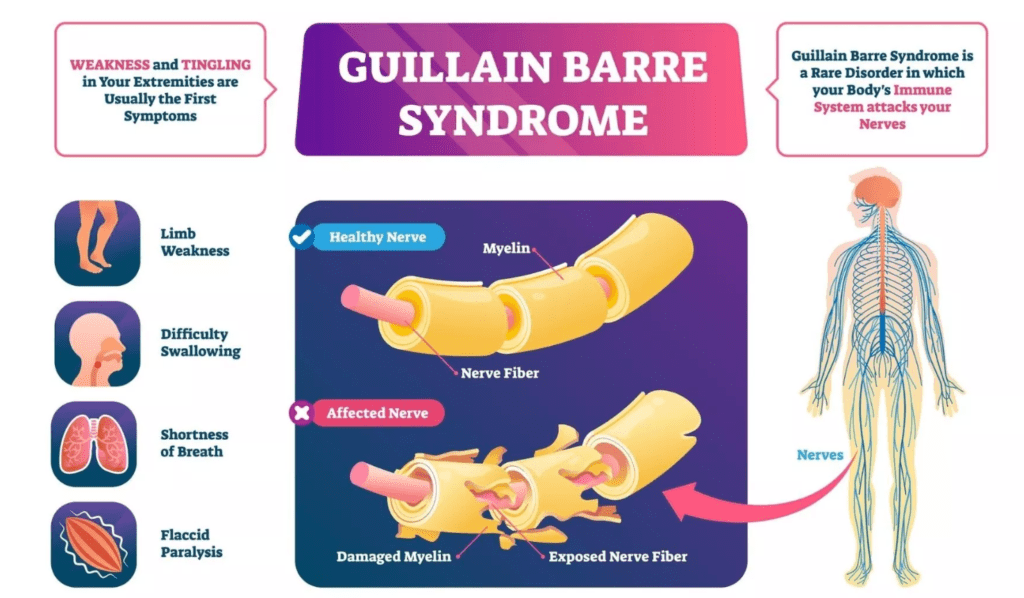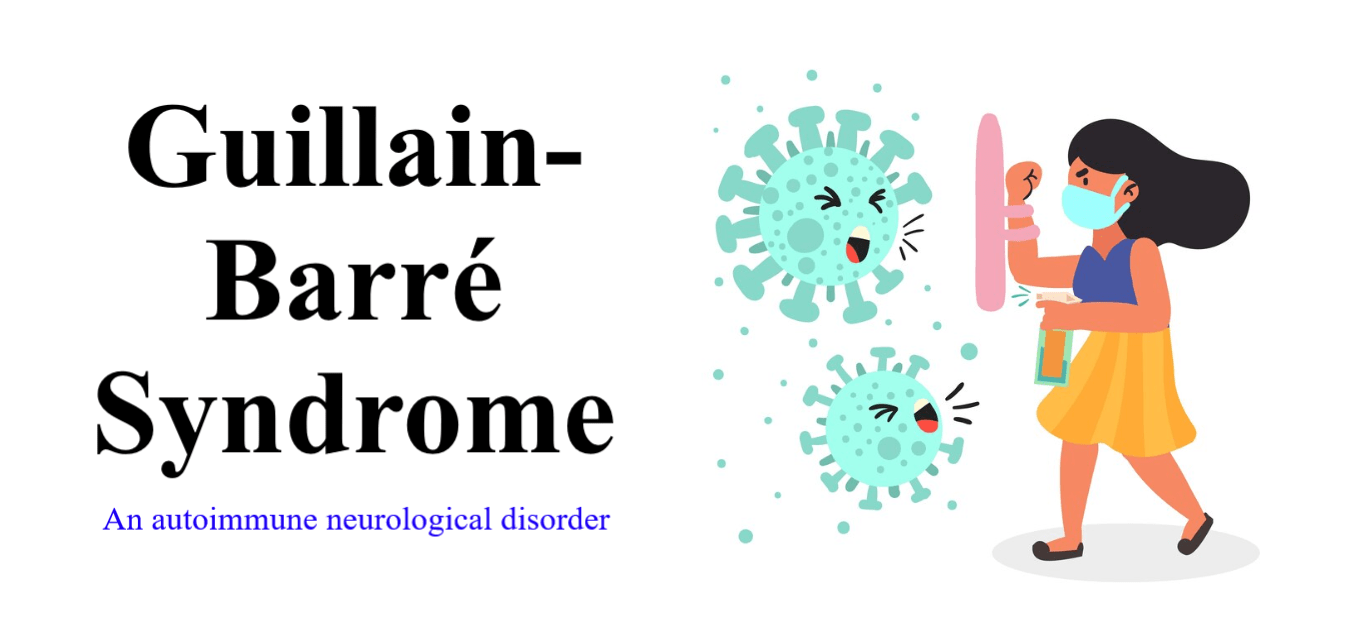Guillain-Barré Syndrome (GBS) is rare health condition or infection caused by the bacteria Campylobacter jejuni, which causes gastroenteritis and is an autoimmune neurological disorder in which a person’s immune system attacks their peripheral nerves. Recently, Union Health and Family Welfare Ministry deployed a high-level multi-disciplinary team to Pune in Maharashtra after a man suspected to have contracted the Guillain-Barre Syndrome died in Solapur district.
About Guillain-Barré Syndrome (GBS)
Guillain-Barré Syndrome (GBS) is an autoimmune neurological disorder in which a person’s immune system attacks their peripheral nerves, leading to muscle weakness that can progress to paralysis. People of any age can be affected, but it is more common in adults and males. The condition is rare, with an estimated incidence of 1/2 per 1,00,000 population.
According to the World Health Organization (WHO), infection with the bacteria Campylobacter jejuni, which causes gastroenteritis (including symptoms of nausea, vomiting and diarrhoea), is one of the most common risk factors for GBS. People can also develop GBS after having the flu or other viral infections from cytomegalovirus, Epstein-Barr virus, and the Zika virus.
Symptoms
The first signs of GBS are usually tingling and weakness that start in the feet and legs before spreading to the upper body, arms and face.
Symptoms include a pins and needles feeling in the toes, fingers, ankles or wrists, back pain, pain in the legs, not being able to walk or climb stairs, trouble with facial movements and double vision. For some people this can lead to paralysis of the legs, arms or face. The severity of the symptoms can range from mild to severe.

In approximately one-third of people, the chest muscles are affected, making it hard to breathe, the WHO says. The ability to speak and swallow can become affected in severe cases. GBS can lead to life-threatening complications when it affects the autonomic nervous system which controls your blood pressure and heart rate.
How it affects?
In autoimmune conditions, the body’s immune system begins to attack its own cells. In GBS, the immune system destroys the myelin sheath — a fatty layer wrapped around nerve cells. This impacts the nerves’ ability to send signals to the brain, which causes weakness in the muscles. GBS affects the peripheral nervous system — the part of the nervous system outside the brain and spinal cord — that controls the movement of muscles, temperature, touch and pain sensations.
Cure or Treatment
There is no known cure for GBS. However, there are some treatments that aid in recovery that are below –
- Plasma Exchange – In plasma exchange or plasmapheresis, the plasma (liquid part of the blood) is removed, treated and then returned to the body. This removes the antibodies from the plasma that are attacking the nerves.
- Intravenous immunoglobulin therapy – It involves injecting the body with immunoglobulins, which are proteins that the body makes to identify and neutralise pathogens. This helps decrease the immune system’s attack on the nerves. Supportive treatment is also given and rehabilitation including physical and occupational therapy may be required. Recovery can take a long time.



Leave a Reply
You must be logged in to post a comment.